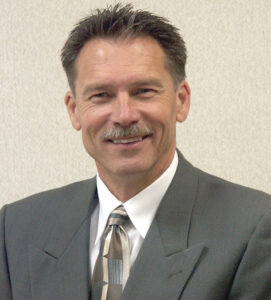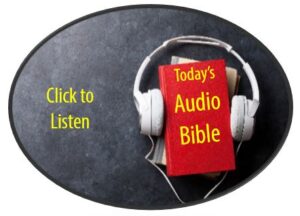
Good weekend to you my “Walking with Jesus” friends,
Have you ever seen someone struggling, straining to control their pet dog on a leash? The dog wants to run free, perhaps it sees other dogs or maybe some cats or a squirrel and the owner is with both arms fully extended and their feet planted firmly, struggling to hold back their dog who is pulling with all their might to run. Is that maybe a picture of us sometimes? Oh God does not have us on a leash and He’s not straining to restrict our thoughts or our words or our choices or our behavior, but do we sense an inner struggle between what we have a strong desire to say or do and what we know would be the wise, God honoring thing to say or do?

Come on, for perhaps a last time, let’s go visit James’ house in Jerusalem and sit while he writes the final chapter of his letter. Already other scribes have been very carefully copying the first four chapters, one word at a time, and James has checked them to be sure their copies are exactly, I mean exactly, what the original parchment reads. You see, once complete, these scrolls will be scattered out across the Roman empire to cities and towns where clusters of Jewish Jesus followers are known to live. No one will have a personal copy, these are way too precious and difficult to reproduce word by word, so these scrolls will be shared from town to another town.
James rolls out the parchment on which he was writing yesterday, and then picks up the quill, dipping it in the ink.
“The prayer offered in faith will make the sick person well, the Lord will raise them up. If they have sinned, they will be forgiven. Therefore confess your sins to each other and pray for each other so that you may be healed. The prayer of a righteous person is powerful and effective.” (James 5:15-17) Oh my, that’s a lot!
One of the advantages we have in 2022 of reading James’ letter, 2000 years after he wrote it, is that we also have all the other books of the Bible with which to compare it. One of the vital truths about the Bible is that it is not only inherent, totally truthful, and inspired by God, it is faithful to itself. That means we can compare other parts of the Bible which speak about a particular topic, and they should come into alignment with each other. Right here is a great example. We need some other Scripture to help us understand what James is saying here, and we need to remember James did not write in English. The Bible you and I are reading, unless it’s an original Greek Bible, are all translations from the original Greek in which James wrote.
Yesterday we dealt in some depth with the first part of James 5:15 and the statement “The prayer offered in faith will make the sick person well, the Lord will raise them up.”, so I won’t repeat that here. But what about the next statement James makes? “If they have sinned, they will be forgiven.” Forgiveness of sin is a fundamental, worldwide desire by all people and every religion or spiritual faith group has some system for achieving sin forgiveness. But what does the Bible teach? What did Jesus teach? What is James saying here?
The Jewish Jesus followers to whom James was writing understood very clearly that God’s forgiveness of their sins was not through keeping all the laws perfectly, nor participating in all the Jewish holy day festivals perfectly, nor living perfect lives… because that was impossible. The forgiveness of their sins by Holy God was ONLY possible when God accepts the death payment of His Son Jesus, as sufficient payment for sin, and God applies that payment to the sins of a repentant person who fully trusts in Jesus to be their Savior from their sin condemnation! God alone can forgive sin against God. Jesus alone can pay the full sin price of death. So yes, I can hear James’ listeners in James’ house that day crying out, ‘Amen James, amen!’ Thanks to Jesus and His atonement death and resurrection, God is willing to forgive our sins if we repent of those sins.

Some years later the apostle John wrote this: “If we claim to be without sin, we deceive ourselves and truth is not in us. If we confess our sins, God is faithful and just to forgive our sins and to cleans us from all unrighteousness… If anyone sins, we have an advocate with God the Father – Jesus Christ, the Righteous One. he is the atoning sacrifice for our sins, and not only for ours, but also for the sins of the whole world.” (1 John 1:8,9; 2:1,2) I’m so glad that is very clear, aren’t you? So, I ask us all… are your sins forgiven by God because you’ve confessed them to Him, and you’ve repented and trusted in Jesus’ full death payment for your forgiveness?
But what do we understand about this statement James wrote: “Therefore confess your sins to each other and pray for each other so that you may be healed.”? Perhaps you remember in the prayer Jesus taught His disciples to pray He included this phrase: “Forgive us our sins as we forgive those who have sinned against us.” (Matt. 6:12) Some years later the apostle Paul wrote quite extensively about this matter of confessing our sins to each other and then extending forgiveness to those who have sinned against you. To the Ephesian Christians Paul wrote: “Be kind and compassionate to one another, forgiving each other just as in Christ God forgave you. Follow God’s example…” (Eph. 4:32)
And to the Colossian Christians Paul wrote: “Bear with each other and forgive one another if any of you has a grievance against someone. Forgive as the Lord forgave you…let the peace of Christ rule in your hearts…” (Colossians 3:13,15) Almost always when a person sins, their sin is first against God by doing or saying that which is not holy, not up to God’s standard. But almost always when we sin, our sin affects someone else and that’s why we confess our sin to the person who has been affected by our sin, and we repent asking for their forgiveness. So, do you see a double repentance and double forgiveness for sin? We confess and repent of our sin with God and God extends His forgiveness to us as He accepts Jesus’ death as payment for our sin. Then we confess and repent of our sin to the person who was impacted by our sin, and they have the opportunity to extend forgiveness to us.

One of the distortions of this great truth of one person forgiving another person for the sin that impacted their lives is an idea that flows out of the next thing James wrote: “The prayer of a righteous person is powerful and effective.” (James 5:16) First of all there are no fully ‘righteous’, holy, perfect people! We are all sinners! That’s a fundamental human truth repeated through the Bible and seen in real life with everyone! (Romans 3:23) But when a person trusts Jesus to be their Savior and God forgives them of their sin and the Holy Spirit cleanses them of their unrighteousness (1 John 1:9) we do not at that moment become perfect, holy and pure. We still have a sinful nature within us, but we are cleansed by the work of the Holy Spirit from the guilt and stain of the sins which have been forgiven by God.
The distorted idea is that one human being can be declared holy by a group of people, perhaps a church, and then that supposed holy person has some God given right to extend the forgiveness of God to a sinner. Only God can extend His forgiveness for sin to a person. And I can only forgive you for the sin you’ve committed against me. I cannot forgive you for the sin you’ve committed against someone else. Do you see that my friends?
So, what is James saying here? First James is celebrating the power and miracle of God’s forgiveness, available to any person who trusts in the atonement death of Jesus Christ to be full payment to God for their sin and confesses their sin to God. Second, James is celebrating that God gives us the power to extend forgiveness to a person who has sinned against us! Third, James is celebrating the power of God miraculously responding to the prayers of His people by accomplishing miracles only God could accomplish here on earth!
For one last time James picks up his stylus and writes a closing statement to his letter: “My brothers and sisters, if one of you should wander from the truth, and someone should bring that person back, remember this: whoever turns a sinner from the error of their way will save them from death and cover a multitude of sins.” (James 5:19,20)
Now you see why I used the example of struggling to hold a dog on a leash. James is talking to his fellow Jewish Christians when he uses those words “brothers and sisters” and James knows how easily it is for all of us to wander spiritually, ethically and even morally as we live our lives in such a dark world. We understand James’ admonition to help each other, don’t we? So who are those people who care enough about you, my friends, that they help you see when you are drifting, and they lovingly challenge you to get back on track with God? Have you thanked them lately and urged them to keep a close eye on you, looking for any evidence of rebellion or drift in you?
James’ letter is complete. Soon copies will be carried from Jerusalem in every direction to Jewish Jesus followers across the empire. James bows his head and prays for God’s blessing on what he has written and God’s protection of those who will carry it across the empire. Now 2000 years later, let’s thank God for the fact that you and I have James’ letter in our language, wherever you live in the world! And I leave you with this one question… are the truths James wrote rooted deeply into your heart and mind so you can live these truths every day for the rest of your life?
And here’s a song to help us consider that powerful reality…
Bible images provided with attribution to www.LumoProject.com.
Have a comment or question about today’s chapter? I’m ready to hear from you, contact me here.

Pastor Doug Anderson 262.441.8785
“Let us run with perseverance the race marked out for us, with our eyes fixed on Jesus…” (Heb. 12:1,2)
Archived back issues of “Walking with Jesus” and other resources are available by clicking here to open our ‘home page’ (or go to HOME at upper right of this page).
Share with friends. Subscribe below for daily “Walking with Jesus”.


